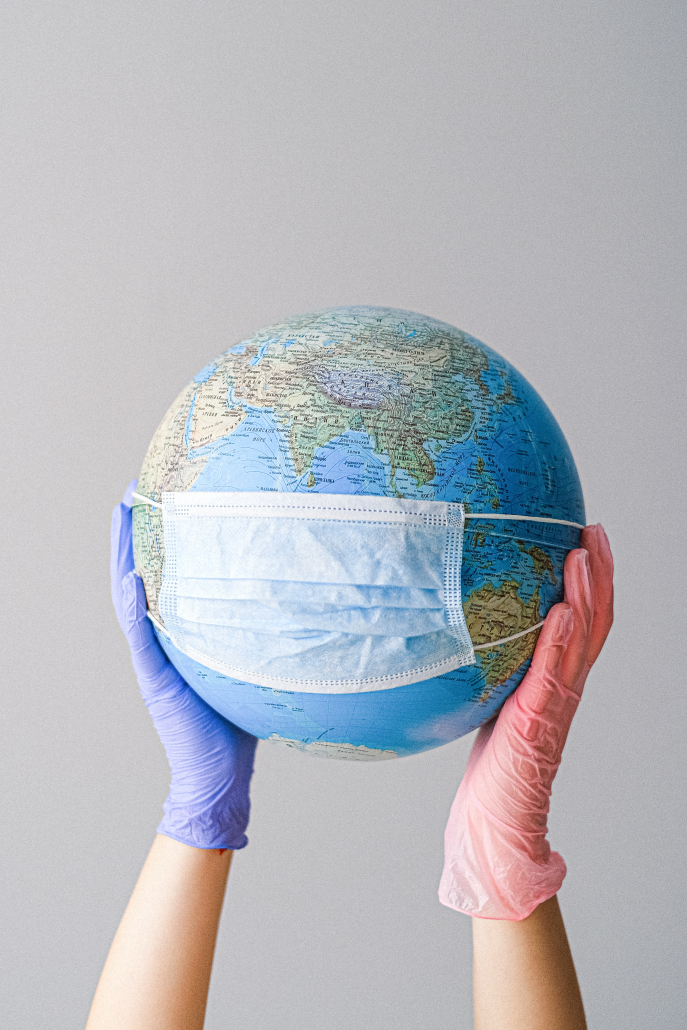Progress Without Profit: Nonprofits’ role in vaccine passports should extend to distribution

When I got the first dose of the coronavirus vaccine, I was surprisingly emotional; the shot in my arm marked a new chapter in public health following the difficulties of the last year. Luckily, my vaccine shot was one of many. With over 3 million Americans vaccinated daily, herd immunity is within reach.
Although vaccine distribution in the United States makes it feel like we’ve cleared a hurdle, the result of people rushing to travel and return to normal life generates an entirely new problem. How do we certify immunity to the coronavirus when people travel to other countries? Nonprofits can support this next phase of the pandemic.
According to public health experts, verifying a person’s immunity is critical in the return to normalcy. Referred to as a vaccine passport, verifying coronavirus immunity will give people the opportunity to bypass certain quarantine measures when they travel.
Vaccine passports are nothing new; the United States has used vaccine passports for public health purposes for over a century. In the early 1900s, the United States required proof of vaccination for smallpox to enter the country, and in the 21st century, proof of vaccination for Yellow Fever is commonly required.
While the European Union, China, Japan and Israel recently revealed their coronavirus vaccine passport programs, the White House announced it will not similarly create a nationwide app. Instead, the Biden Administration gives states discretion to implement a vaccine passport, allowing both the private and nonprofit sector the opportunity to develop a vaccine passport app.
Many nonprofits have already partnered with businesses to develop apps for a vaccine passport. The nonprofit CommonPass, which makes health records accessible in digital form, partnered with JetBlue and United Airlines to create an app that shares test results and vaccination records to allow people on planes.
Health-centered nonprofits such as CommonPass often have the trust and connections to local communities that major airlines including JetBlue or United lack, making a partnership extremely valuable. Dakota Gruener, the executive director of the nonprofit ID2020, which works on digital identification, emphasizes this important role of nonprofits in vaccine passports when she claims the process cannot be driven solely by the private sector.
As organizations with specific missions to promote the welfare of society rather than make a profit, nonprofits are a logical choice to help with public health initiatives. But, with the responsibility to create a vaccine passport, nonprofits must acknowledge, address and alleviate the existing problems in healthcare — mainly, vaccine distribution inequity.
While the vaccine passport itself does not cause inequities, it showcases the disparities of vaccine distribution at a global level. Although headlines celebrate the United States’ extremely successful vaccine rollout, nearly 100 countries have not started any coronavirus vaccination program, with many low-income nations lacking necessary financial resources for vaccine administration sites or storage facilities. Additionally, the United Nations refugee agency found that of the countries they collected information on, only 54 of 133 explicitly stated they will vaccinate refugees, asylum seekers or those who are stateless. As a result, the vaccine passport prioritizes the travel of the most privileged and wealthiest countries.
Hopefully, when nonprofits see firsthand how a vaccine passport perpetuates inequities, they will be inspired to change the underlying issues. Ideally, local nonprofits can deliver vaccines to remote locations with little infrastructure, thereby accessing the people and communities the government may miss.
For example, when the nonprofit Community Organized Relief Effort realized that the vaccination center at Dodger Stadium served mostly white and affluent people, it created mobile clinics to go to other parts of the city. In contrast to the Dodger Stadium site, 70% of people who received the vaccine at CORE mobile sites are Black.
This model of bringing necessary resources to communities should be replicated at a global level. If nonprofits do not actively seek to vaccinate marginalized communities, they will continue to be overlooked — both abroad and within the United States.
There is, however, a reason to feel hopeful. The nonprofit GlobalGiving collected over $13 million in donations to make vaccines more accessible and affordable around the world, filling holes left by the government in the process. For the greatest impact, nonprofits should partner with both the governments and other organizations to increase efforts for vaccination world-wide. If nonprofits help develop a vaccine passport that restricts travel for people without coronavirus immunity, they must help those people get vaccinated in the first place.
Sophie Roppe is a junior writing about nonprofit organizations and social justice. Her column, “Progress Without Profit,” runs every other Monday.

